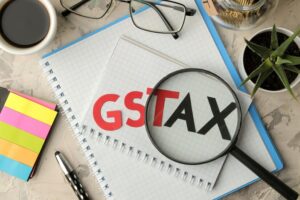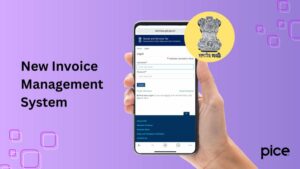Whether a Composition Dealer Under GST Can Purchase Goods from Outside State
- 20 Sep 24
- 13 mins

Whether a Composition Dealer Under GST Can Purchase Goods from Outside State
Key Takeaways
- The GST Composition Scheme is designed to simplify compliance and reduce the tax burden for small taxpayers in India, offering them the option to pay GST at a reduced, fixed turnover rate.
- Not all taxpayers are eligible for the Composition Scheme; restrictions include taxpayers with high turnover, interstate suppliers, suppliers of non-taxable and notified goods, most service providers, e-commerce operators, and casual or non-resident taxable persons.
- Eligibility for the Composition Scheme requires meeting specific conditions such as turnover limits, conducting intra-state business operations only, dealing in eligible goods and services, not selling through e-commerce platforms, and not claiming Input Tax Credit.
- One significant limitation of the Composition Scheme is the prohibition on interstate purchases of goods, requiring composition dealers to source goods within their own state or Union territory.
- This interstate purchase restriction can impact the operational strategies and procurement options of businesses under the Composition Scheme, potentially leading to increased costs and sourcing limitations, despite simplifying compliance.
The Goods and Services Tax (GST) has been a significant reform in the Indian taxation system, streamlining the process and bringing uniformity. Among its various facets, the GST Composition Scheme stands out for its simplicity and reduced compliance burden for small taxpayers. However, there are nuances and restrictions within the scheme, especially concerning interstate transactions. This blog delves into whether a composition dealer under GST can purchase goods from outside their state.
Composition Scheme Under GST Explained

To lessen the compliance cost, small taxpayers can choose to participate in the voluntary GST Composition Scheme. It enables qualified taxpayers to pay GST at a turnover rate that is fixed and far less than the standard tax rates. Because taxpayers must file returns on a quarterly basis instead of a monthly one, this scheme streamlines the tax filing process and saves a large amount of money on paperwork and compliance expenses.
The Composition Scheme's main selling points are its simplicity and reduced tax burden, which make it especially advantageous for traders and small enterprises. But it's important to realize that choosing this plan has some restrictions and requirements, which we will go over in more detail.
Who Cannot Opt for Composition Scheme?

Small taxpayers in India can benefit from a streamlined tax structure through the GST Composition Scheme (GST), which enables them to pay GST at a discounted rate based on their turnover. But not all taxpayers can choose to participate in this program. Because of the nature of their company operations or the kinds of transactions they engage in, a number of taxpayer categories are expressly prohibited from using the Composition Scheme. The taxpayer types listed below are those who are unable to choose the Composition Scheme:
- Taxpayers with a High Turnover: The most basic criterion that determines eligibility for the Composition Scheme is the annual turnover of a business. Taxpayers whose turnover exceeds the prescribed limit (which varies from state to state but is generally up to INR 1.5 crores, with some exceptions allowing up to INR 2 crores) in the previous financial year cannot opt for the scheme.
- Inter-State Suppliers: Taxpayers who engage in the supply of goods or services across state borders (inter-state supplies) are not eligible for the Composition Scheme. This condition is in place to simplify tax compliance and administration for composition dealers, focusing their operations within their own state.
- Suppliers of Non-Taxable Goods: Businesses that deal in the supply of goods or services that are not taxable under GST, such as alcohol for human consumption, cannot opt for the Composition Scheme.
- Manufacturers of Notified Goods: Certain goods are notified by the government as being ineligible for the Composition Scheme. Manufacturers of such goods are, therefore, excluded from opting for this scheme.
- Service Providers: Initially, the Composition Scheme was primarily designed for traders and manufacturers. Most service providers were excluded, with the notable exception of restaurant services that do not serve alcohol. However, recent amendments have allowed a special composition scheme for service providers with a turnover of up to INR 50 lakhs, subject to certain conditions.
- E-commerce Operators: Taxpayers who supply goods through e-commerce operators are not eligible for the Composition Scheme. This is because transactions through e-commerce platforms inherently involve complexities such as inter-state sales that the Composition Scheme aims to avoid.
- Casual Taxable Persons or Non-Resident Taxable Persons: Those who are registered as casual taxable persons (persons who occasionally undertake transactions involving the supply of goods or services in a taxable territory where they have no fixed place of business) or non-resident taxable persons cannot opt for the GST Composition Scheme.
💡Eligibility for the Composition Scheme is tightly regulated to ensure it benefits the intended group of small taxpayers by reducing their compliance burden while maintaining the integrity and simplicity of the tax system. Normal Taxpayers must evaluate their business activities against these criteria to determine their eligibility for the scheme.
What Are the Conditions for Availing Composition Scheme?
By enabling small taxpayers to pay GST at a reduced rate based on their turnover, the Composition Scheme under the Goods and Services Tax (GST) system in India can greatly lessen the compliance burden for them. To qualify for this program, however, taxpayers must meet a number of requirements meant to guarantee that it helps the target market and streamlines the tax system. The following are the prerequisites to use the Composition Scheme:

- Turnover Limit: The taxpayer's aggregate turnover in the previous financial year should not exceed the prescribed threshold, which is generally INR 1.5 crores for most states but can go up to INR 2 crores for certain states. This limit is subject to periodic updates and may vary, highlighting the scheme's focus on small and medium-sized enterprises.
- Intra-state Business Operations: The registered taxpayer must conduct business operations within the same state or Union territory in which they are registered. The Composition Scheme is not available to taxpayers who engage in interstate supplies of goods or services, as it aims to simplify tax compliance for local businesses.
- Goods and Services Eligibility: Taxpayers must exclusively deal in goods or services that are eligible under the Composition Scheme. This excludes the supply of non-taxable goods, services not covered under the scheme, and certain notified goods which the government deems ineligible.
- No E-commerce Sales: Taxpayers opting for the Composition Scheme cannot supply goods through e-commerce platforms that are required to collect tax at source (TCS) under GST. This condition is in place to maintain the simplicity of the scheme and avoid the complexities associated with e-commerce transactions.
- No Input Tax Credit (ITC): Taxpayers under the Composition Scheme are not eligible to claim Input Tax Credit (ITC) on their purchases. This is a significant trade-off for the benefit of lower tax rates and simplified compliance.
- Taxable Person Not Involved in Other States: The scheme requires that all business locations registered under the same Permanent Account Number (PAN) must opt for the Composition Scheme. If a taxpayer has operations in multiple states, all such businesses must collectively opt-in or out of the scheme, ensuring uniform compliance across the board.
- Bill of Supply: Instead of issuing a regular tax invoice, a taxpayer under the Composition Scheme must issue a 'Bill of Supply,' as they are not allowed to collect tax from their customers. Additionally, such taxpayers must mention "Composition taxable person, not eligible to collect tax on supplies" at the top of the Bill of Supply to inform the recipients.
- Payment of Tax at Prescribed Rate: Taxpayers must pay tax at a prescribed percentage of their turnover within the state. This rate varies for manufacturers, traders, and service providers, offering a simpler alternative to the standard GST rates.
- Quarterly Returns: Unlike regular taxpayers who file monthly returns, those under the Composition Scheme are required to file their GST returns on a quarterly basis, further simplifying their compliance requirements.
Taxpayers who wish to avail themselves of the Composition Scheme must ensure they meet all these conditions. It's essential to periodically review these criteria, as changes in business operations or updates to the GST law could affect eligibility.
Can GST composition dealer sell interstate?
The Composition Scheme provides small taxpayers with a streamlined tax strategy within the Goods and Services Tax (GST) framework in India. It enables them to pay tax at a reduced rate based on their turnover, with fewer compliance obligations. But this program has limitations that affect how well firms that choose to use it may operate, especially when it comes to buying items from other states.
Key Restriction: No Interstate Purchases
One of the most significant limitations for composition dealers is the restriction on the interstate purchase of goods. Specifically, businesses registered under the Composition Scheme are prohibited from purchasing goods from a supplier located outside their state or Union territory. This restriction is aligned with the scheme's objective to simplify tax compliance for small taxpayers by limiting their transactions to within their own state, thereby avoiding the complexities associated with interstate trade and GST compliance.
Implications of the Restriction
- Sourcing Limitations: Composition dealers are required to source their goods locally, within the same state or Union territory in which they are registered. This can limit the range of products they can sell, especially if specific goods are cheaper or only available from suppliers in other states.
- Increased Costs: In some cases, the inability to purchase goods from other states may lead to higher procurement costs. If goods are more expensive locally than in other states, composition dealers may face higher input costs, which could impact their pricing and competitiveness.
- Simplified Compliance: While this restriction may seem limiting, it simplifies tax compliance for composition dealers. Since all transactions are contained within a single state, it reduces the complexity of dealing with interstate GST rules and filing.
- Operational Adjustments: Businesses opting for the Composition Scheme might need to adjust their operational strategies, including sourcing and supply chain logistics, to comply with the restriction on interstate purchases. This could involve finding new suppliers or renegotiating terms with existing ones within the state.
Alternatives and Considerations
For businesses that rely heavily on inter-state transactions, evaluating the benefits of the Composition Scheme against its limitations is crucial. In some cases, it may be more advantageous to opt out of the scheme to freely engage in interstate procurement, accepting the higher compliance requirements that come with regular GST registration.
It's also worth noting that this restriction applies specifically to the purchase of goods. The GST framework and the Composition Scheme continue to evolve, with periodic amendments that may adjust these restrictions or provide new avenues for businesses to manage their operations under the scheme.
💡If you want to pay your GST with Credit Card, then download Pice Business Payment App. Pice is the one stop app for all paying all your business expenses.
In summary, while the Composition Scheme under GST offers significant advantages in terms of reduced compliance and lower tax rates, the restriction on purchasing goods from other states presents a challenge for composition dealers. Businesses must carefully consider their operational needs and procurement strategies when deciding whether to opt for the Composition Scheme, keeping in mind the trade-offs between simplified compliance and operational flexibility.
 By
By 


















